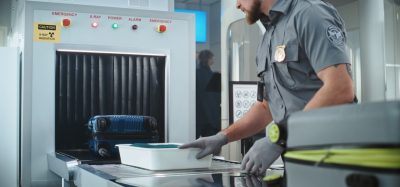Managing fear of change during an age of technology acceleration
Posted: 12 July 2024 | David Wilson | No comments yet
David Wilson, the Managing Partner of daa International, and International Airport Review’s Advisory Board member spoke to Editor, Holly Miles, about the challenges airports are facing with regards to skills, and the importance of change management when implementing new technologies. Wilson also details his trends to watch in 2024.


What are you personally working on at the moment?
Dublin Airport Authority International (daa International) are well established in Saudi Arabia and the Middle East, but have now reached across the globe to the Southeast Asia and Asia Pacific region, and I’m primarily looking after our growth plans for North America.
What I’m working on at the moment is focusing engagement with airports in Canada and the United States in terms of the opportunities we have as Dublin Airport International. We want to bring our learnings from Ireland as well as other airports across the world to help improve the people, bags, and aeroplanes elements, and also consider commercial opportunities alongside IT innovation and digital transformation.
I have a lot of interactions with airports, hearing where their pinch points and challenges are, and then presenting them with opportunities to use their expertise to help them make better decisions. We’re looking for projects that will have a decent return on investment and, perhaps at the same time, lead into management contracts in the future.
What are the challenges that most airports are coming to you with?
A lot of the challenges are based around personnel. There’s a significant skills gap in the industry at present for a number of reasons. We must look at the whole innovation side of things.
If you do a digital transformation programme it must be aligned with a cultural change programme that is required. Some people are terrified of artificial intelligence (AI), innovation and transformational new technologies. But it is important to demonstrate to staff that it’s about a levelling of the workforce, rather than replacing them. You can use AI to enhance and improve the capability of an individual, the department, and the airport. So don’t fear this new evolution – embrace it.
In Dublin, we’ve created the innovation hub. It’s a fantastic team of people from IT, operations and commercial who are looking out and scanning the horizon to see what new transformational strategies and digital opportunities are out there. So, that’s the challenges a lot of airports are coming to us with, the levels of capability and the numbers of staff. Of course, at the same time, managing the fears of existing staff about this transformational programme that is AI.
It’s like with any change programme; there’s a fear initially. What does this change mean for me? My future, my job, my career? Lots of change programmes fail because there’s a failure on the part of the leadership team to create an environment where people can ask questions about the impact and change with them.
If you get the cultural change programme aligned with the digital change programme, there can be a real coming together for the benefit of the individual employee, the organisation, and fundamentally, the passenger.
I’ve done multiple change programmes over the three decades I’ve been in this industry. My number one tip for airport leaders thinking of implementing a change programme like this would be: listen to your staff, understand any concerns, and don’t respond immediately. Take those challenges, concerns and fears, understand them better, and come back to the staff, the partners and describe how that change is going to affect them. Do any change programme in collaboration with your workforce, with your customers, with your suppliers, with your stakeholders, to demonstrate and succeed in terms of delivery of that programme.
You are exploring city centre baggage check-in with your partnership with Currie & Brown. Tell us more about this.
Our joint venture between Currie & Brown and the Dublin Airport International, initially for the U.S. and perhaps wider field thereafter, is something that is quite different.
One of the interesting concepts of Red Sea International Airport development is that the passenger will arrive, get transported to the seaplane terminal and then be taken by helicopter or seaplane to their six-star hotel, and then the bag arrives shortly after they do, if not before. Taking the bag from the passenger before they even get on their transport to the airport can be a real benefit and a real game-changer.
Hong Kong International Airport and London Gatwick Airport have self-service check-ins at train stations, allowing travellers to check in at the train station before their arrival at the airport.
We’ve done a little bit of research in terms of what the passenger would like, and everybody has said something very similar. It would be great to get rid of the bag earlier, but can we trust it to get there? We’ve been working alongside ground handling companies and airline stakeholders. I think working through the proof of concept and doing a whole host of trials shows us that the proof of the pudding is in the data. If it works, which I know it will because of the concept, it is there and I think that’s something that will come in time.
From analysis of customer feedback, they would like a product readily available to choose. At the end of the day, it’s about giving passengers a choice.
What are your trends to watch for 2024?
I’m really embracing the whole AI concept. My background is very much airfield operations and I’m really excited about the AI apron turnaround technology that’s out there. I think having the right equipment, and the right place at the right time with the right personnel, is something that airports have struggled with over the years. The AI concept and its speed of the change is just incredible. It really is, and it’s very exciting.
The airport collaborative decision-making (A-CDM) concept has been very beneficial, settling European airports in terms of the data sharing between the ANSP airport, the airline, and the ground handling company. To have real-time data being analysed and teams being able to look at how the operation could have been more efficient, potentially safer, is something that is really exciting for me at the present moment.
Also, the technological element and understanding what airports are doing really well. The benefit of my job is that it allows me to go and speak to those airports. I’m very fortunate to have many friends and colleagues across the industry who would be glad to share their learnings with myself. I just like to listen and learn. Despite the time I’ve spent in the airport, I just like to improve my knowledge and understanding. So, that’s what I’m looking forward to in 2024.


Join our free webinar: Beyond silos: How ecosystem thinking elevates the airport experience
In today’s complex aviation landscape, airports are moving beyond siloed operations to embrace a new era of collaboration. This webinar focuses on how leading airports are using ecosystem thinking to adapt, personalize, and continuously improve every touchpoint, boosting both passenger satisfaction and non-aeronautical revenue.
Date: 13 Nov | Time: 10:00 GMT
REGISTER NOW TO SECURE YOUR SPOT
Can’t attend live? No worries – register to receive the recording post-event.
Issue
Related topics
Artificial intelligence (AI), Digital transformation, Information technology (IT), Innovation, New technologies, Passenger experience and seamless travel, Workforce


















